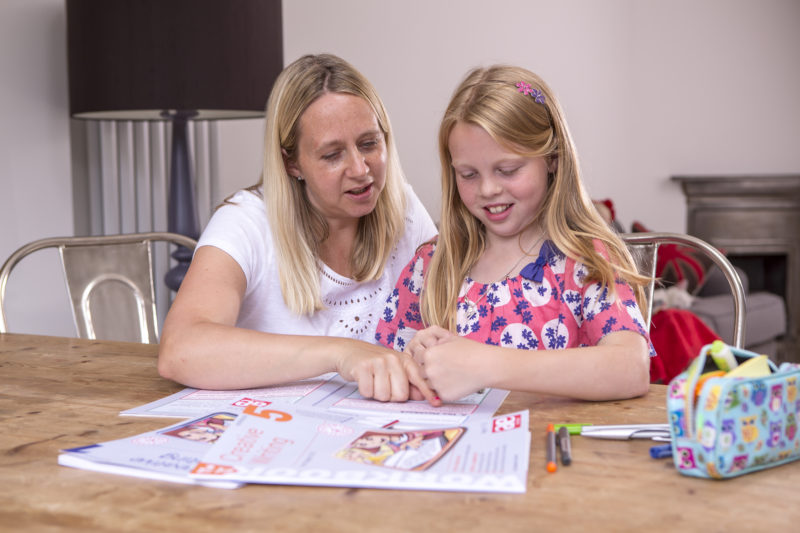For some children, the new school year can fill them with dread. We all know that ‘Sunday evening feeling’ when you’ve got work the next day. For children, this feeling is amplified at the beginning of the new school year, when they have to adjust from the long holiday and discover that the school work got a lot harder!
We know that primary school is a crucial time in a child’s educational life. Primary school is where the foundation of their education is set. If there are any gaps in a child’s education, this can have a knock-on effect in their learning and confidence throughout the rest of their school life.
As a parent with a child of primary school age, you may have already noticed some gaps in their education and may not be sure how best to help. Here’s our advice on how to deal with any concerns you have with your child’s education, so they have the opportunity to reach their full potential and be filled with confidence.
1. Arrange a meeting with your child’s teacher
Don’t wait for parents’ evening. If you feel there is an issue with your child’s learning or confidence, speak with their teacher as soon as possible to give you reassurance or to put an action plan in place. It’s common for parents to think there is an overall problem, such as a learning difficulty, but it’s best not to jump to conclusions. In most cases, children’s struggles could be caused by something as simple as having a few gaps in their learning. For example, perhaps they were off sick when a topic was covered, a few lessons were too fast for them, or they could be easily distracted in class. A discussion with the teacher could help ascertain the root cause. The sooner you act, the easier it is to identify the issue and put a solution in place.

2. Focus on the two most valuable things to learn at primary school
Most families live busy and chaotic lives and it can be hard to find time to sit down with your child with no distractions. However, we believe just 20 minutes a day concentrating on two areas will help your child’s learning and confidence in the classroom. These areas are:
- Reading
- Learning the times tables
Both of these are key for building a strong educational foundation. No matter what a child is learning, skills in these two areas will support them in any subject. Knowing how to read is half the battle to further expanding a child’s knowledge. Maths is no different; knowing the times tables at random will facilitate most maths topics up to GCSE level. By year 4, the aim is for children to know their times tables up to 12x. We believe there is only one way to progress with reading and learn the times tables and that is through practice.
3. Practice, practice, practice
This brings us on to the most important thing any child can do to support their education – practice! The more you do something, the more it becomes second nature and confidence grows and grows.
For 20 years we have been publishing English, maths, verbal and non-verbal reasoning books for children in Key Stage 2 (7-12 years old). These books provide general support in English and maths, and also prepare children for SATs and 11+ exams. Our books provide a structured way of practising methods and techniques through exercises, short tests and practice papers. We understand the frustrations primary school children can face in school and know what motivates them to strive to achieve their own personal success.
Relaxation Is Just As Important
Parents want their children to reach their potential in school and life. Regarding academic success, several factors play a role, including IQ, motivation, and opportunity. However, playtime is one of the most important predictors of school success. That’s right – playing games can help your child achieve their potential in school. Games can help children develop essential skills such as problem-solving, critical thinking, and social skills. In addition, games can also be a great way to relieve stress and promote relaxation. So if you want your child to reach their potential in school, make sure to diversify their playtime with different games for leisure. Board games are a great option – they are fun and can also help children develop essential skills for academic success. So next time you’re looking for a new game for your child, don’t forget to consider a classic like Star Wars board games. Who knows – you might just help them achieve their potential in school.
Follow our top tips and help strengthen your child’s foundation
Our tips are simple; communicate and practise! Keeping on top of your child’s education will help immensely with their learning and confidence, and give them the tools to reach their full potential at school.
Our ‘how-to’ workbooks contain stepped-out examples with full explanations. They are great resources to guide children and parents through each exercise. Our testbooks reinforce the techniques and test children’s knowledge, and should be used alongside the workbooks. The testpacks should be used after the workbooks and testbooks for final exam preparation or to consolidate what has been learnt.
All our books are classroom tested and complement the national curriculum. To find out more and to see the full range, visit: www.aepublications.co.uk
You can buy single books or, for great savings, bundles and mega bundles. See what parents think of our books on Trustpilot: https://www.trustpilot.com/review/www.aepublications.co.uk

Disclaimer: This article is sponsored editorial, paid for by AE Publications.
Image credits: AE Publications

